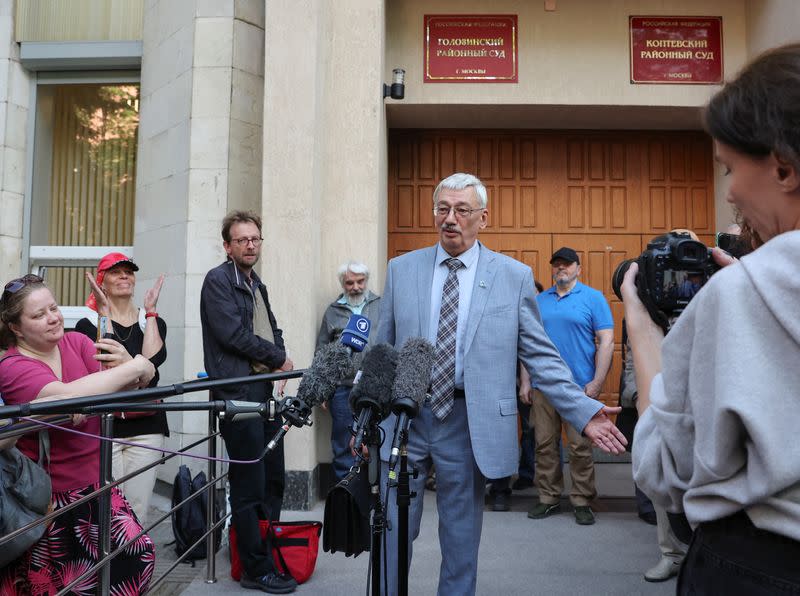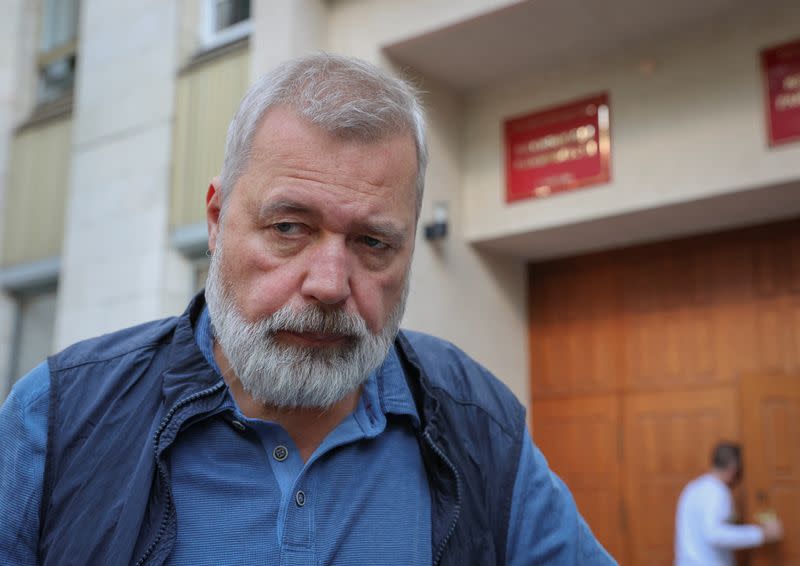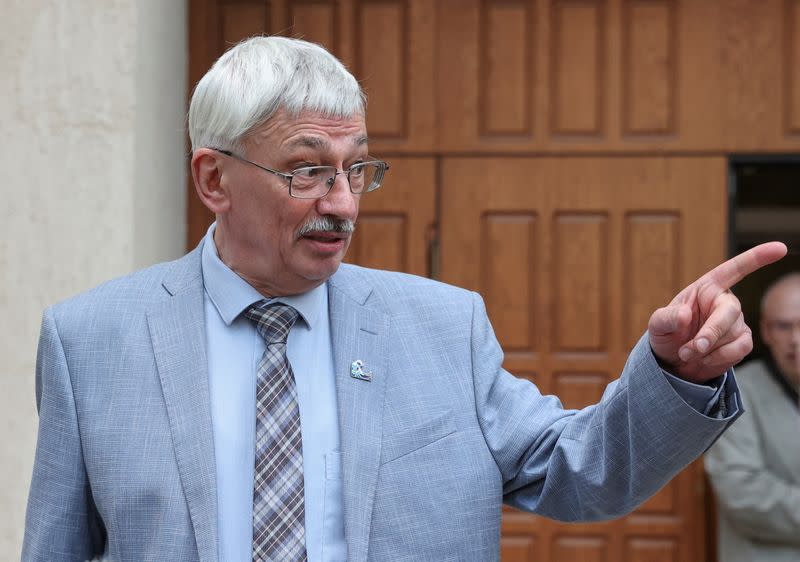Veteran Russian rights campaigner Orlov goes on trial for discrediting army
MOSCOW (Reuters) - One of Russia's longest-serving and most respected human rights campaigners went on trial on Thursday, facing the prospect of three years in jail if convicted of repeatedly discrediting Russia's armed forces, his organisation said.
Oleg Orlov has since 1999 been one of the leaders of Memorial, which won a share of the Nobel Peace Prize in 2022 a year after being banned and dissolved in Russia.
Since sending its tanks into Ukraine in February 2022, Moscow has intensified a long-running clampdown on all forms of political dissent and made it an offence to discredit the armed forces or deviate from government accounts of what it calls a "special military operation".
Sentences range up to 15 years in jail, although comments deemed to constitute treason, such as those for which opposition politician Vladimir Kara-Murza was jailed in April, can be punished by life imprisonment.
Orlov, who came to prominence by opposing Soviet totalitarianism, told the independent Moscow Times last month that campaigners like him were to some extent following the path of anti-communist dissidents of the Cold War era.
"The state is again totalitarian," he said.
Orlov had already been fined for holding anti-war banners in public. The new charges are based on an article he wrote denouncing Russia for waging the conflict.
"In my article I spoke about the terrible role that war plays for the development of the political regime in our country," he told the court, according to a Memorial post on Telegram.
"This is an opinion, reasoning, an evaluation," he said, adding that he could not understand how he could be punished for expressing an opinion.
Orlov's defence team included Dmitry Muratov, editor of the now-banned independent newspaper Novaya Gazeta and also a winner of the Nobel Peace Prize, for his decades of work to defend freedom of speech in Russia.
"Article 29 of the Constitution directly says that censorship is prohibited, everyone has the right to disseminate information, and no one has the right to force anyone to give up their beliefs," Muratov told reporters outside the court.
Natalia Zviagina, Amnesty International's Russia Director, said the state could not tolerate Orlov's "need to defend the truth and his refusal to remain silent".
"The price he and others pay for exercising their right to freedom of expression in today's Russia is very high indeed," she said.
(Reporting by Reuters reporters; Writing by Kevin Liffey; Editing by Angus MacSwan; Editing by)





